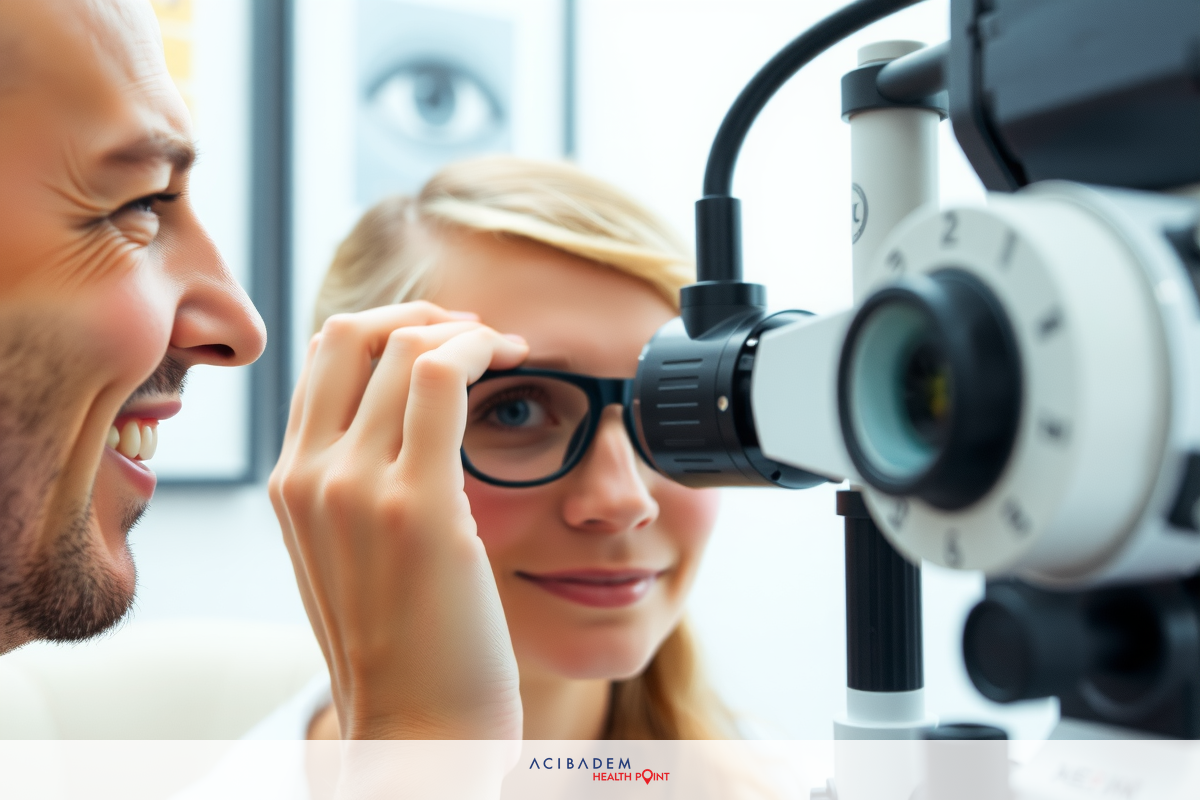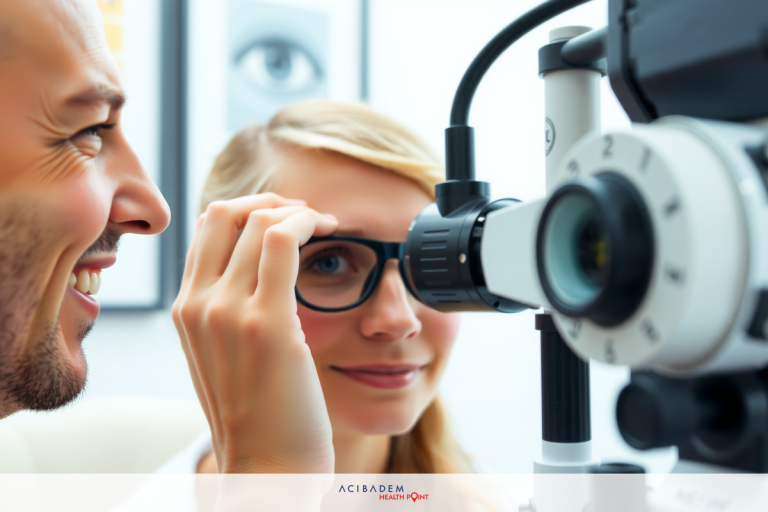Can You Get Laser Eye Surgery if You Wear Bifocals?
Can You Get Laser Eye Surgery if You Wear Bifocals? The world of vision correction can be a labyrinth, with various paths leading to different solutions. One such path is laser eye surgery, often considered by those wearing bifocals. The prospect may seem daunting; the thought of moving from glasses to lasers might induce a sense of trepidation.
Yet, the reality unearths possibilities that were previously unfathomable. Eligibility for this type of intervention isn’t as restrictive as one might initially believe; indeed, many who wear bifocals could potentially benefit from laser eye treatment. From improving visual acuity to eliminating dependence on eyewear – these are just glimpses into what this innovative form of vision correction offers.
Navigating insurance coverage can pave its own set of challenges when considering laser eye surgery whilst sporting bifocals. It’s crucially important not to overlook this aspect and take necessary steps for consultation with your respective insurance company about specific coverage criteria available in your plan. This process ensures you have all pertinent financial information at hand before making any decisions regarding the procedure.
Eligibility for Laser Eye Surgery with Bifocals
In the realm of vision correction, laser eye surgery emerges as a beacon of hope for many. Yet, specific factors determine eligibility that bifocal wearers must consider before embarking on this journey towards clearer sight. The candidacy is not merely black and white; instead, it lies in a spectrum influenced by several aspects.
Laser eye surgery seeks to reshape your cornea – the clear front part of your eye – to correct various vision problems. However, candidacy largely depends on the thickness and shape of your cornea. Those wearing bifocals may have presbyopia – an age-related condition where close-up objects appear blurred – which could potentially complicate their candidacy for this procedure.
The health status of one’s eyes can also play a pivotal role in determining whether they qualify for laser eye surgery or not. Conditions such as dry eyes or glaucoma could pose risks that might outweigh the benefits offered by this form of treatment. Furthermore, certain systemic illnesses like diabetes could impact healing post-surgery—making them less than ideal candidates.
Lifestyle considerations are a crucial but often overlooked aspect when determining eligibility for laser eye surgery, especially for individuals who wear bifocals. High levels of physical activity, including contact sports or precision visual tasks required for certain jobs, might contraindicate these procedures due to the associated risks.
Understanding these factors paves way towards making informed decisions about pursuing laser eye surgery while wearing bifocals—a step closer towards successful vision correction.
Benefits of Laser Eye Surgery for Bifocal Wearers
Laser eye surgery, a revolutionary technology in the field of vision correction, can offer an array of benefits to bifocal wearers. However, it’s essential to acknowledge that these advantages might vary greatly among individuals based on their unique ocular conditions and lifestyle preferences.
The most tangible benefit laser eye surgery offers is the potential for improved visual acuity—bringing the world into sharper focus without leaning heavily on corrective eyewear. This could mean reading your morning newspaper comfortably without fishing out your bifocals or appreciating distant sceneries with newfound clarity. The joy derived from such enhanced vision cannot be understated.
This procedure might offer more freedom in terms of lifestyle choices—for instance, engaging in sports activities

becomes less cumbersome when you’re not constantly worried about damaging your glasses. Furthermore, those who find themselves inconvenienced by alternating between different pairs of spectacles may consider laser eye surgery as a liberating solution—consigning the need for multiple eyeglasses to history.
On another note, psychological benefits also accompany this form of treatment—a boost in self-confidence being one prime example. People often report feeling more confident post-surgery due to no longer needing corrective lenses as a daily necessity—an aspect that shouldn’t be overlooked when considering laser eye surgery.
The decision to undergo laser eye surgery cannot solely hinge on its benefits; it requires careful consideration against potential risks involved too. Yet there’s no denying that for many wearing bifocals and dreaming about life sans glasses—the allure offered by this innovative technology is hard to ignore.
Consulting Your Insurance Company
Navigating insurance coverage for a procedure such as laser eye surgery can seem like venturing into an unknown labyrinth. However, for bifocal wearers contemplating this form of vision correction, it’s a crucial aspect that warrants careful consideration—much like the medical eligibility criteria.
The first step involves understanding your specific insurance plan in detail. While some plans may offer partial or complete coverage for corrective surgeries like LASIK, others might not extend their support to these procedures deeming them ‘cosmetic’ rather than ‘necessary.’ Therefore, bifocal wearers need to consult with their insurance providers to determine whether they cover laser eye surgery and to what extent.
During your consultation with the insurance company, remember to ask about all possible contingibles related to coverage of the procedure. This could range from specifics about deductibles and copayments associated with pre-operative tests right up until post-operative care. It’s essential also not just merely focus on immediate costs but take into account potential long-term expenses linked with follow-up visits or any unexpected complications arising from the surgery.
Consider asking if your policy offers any preferential benefits when choosing certain medical facilities or surgeons over others—an often overlooked clause that could potentially save substantial amounts out-ofpocket costs. Additionally, ensure you’re clear about any pre-authorization requirements before scheduling your surgery—neglecting this aspect could lead to unpleasant surprises down the line.
The process of consulting your insurance company might initially appear daunting; however, taking time out for this necessary step can significantly influence how smoothly you navigate through financing laser eye surgery amidst sporting bifocals—a worthy endeavor towards clearer vision.
Frequently Asked Questions
Is laser eye surgery a safe option for bifocal wearers?
Laser eye surgery has proven to be a safe and effective procedure for many people. However, it's essential to remember that like any surgical intervention, there are potential risks involved too. Bifocal wearers should consult with their ophthalmologist or optometrist who can provide personalized advice based on their unique ocular conditions.
How long does the recovery process take post-surgery?
The recovery timeline varies among individuals—some may experience improved vision within a day while others might require several weeks to notice significant changes. It's also not uncommon to have fluctuating vision in the initial days following the procedure as your eyes adapt to the new corneal shape.
What if my insurance does not cover laser eye surgery?
If your insurance plan doesn't cover this procedure, you could explore other financing options such as medical credit cards or payment plans offered by some clinics. Consult with both your healthcare provider and insurance company about what alternatives might be available given your circumstances.
Will I still need glasses after undergoing laser eye surgery?
Some patients may indeed eliminate their dependence on corrective eyewear post-surgery; however, this isn't a guarantee for everyone—particularly those over 40 years of age dealing with presbyopia (age-related nearsightedness). These answers are intended solely for informational purposes and do not constitute medical advice. Always consult directly with healthcare professionals regarding specific concerns related to vision correction procedures.








